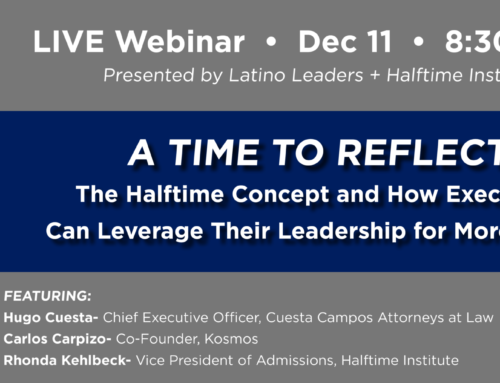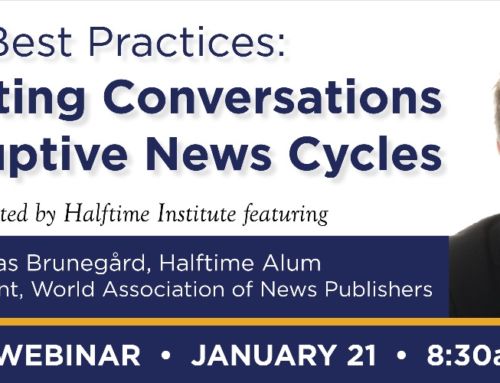It’s your eightieth birthday and someone has taken you to your favorite restaurant. Stepping through the front door, you see the entire place has been rented out for the occasion. Across a large room you see some two hundred family members, friends, and business associates. The room has a stage and a microphone.
After dinner, one by one, all of the guests—your spouse, your children, your neighbors, employees, associates—form a line to take the microphone and say to everyone what your life has meant.
What do you hope to hear?
As you consider the final commentaries on your life from the people who know you, three questions can help you use that picture to improve your life—starting now. The questions are:
- What is all your gaining costing you?
- What in your life has the greatest value to you and how do you protect it?
- If you were to reorder your life to finish well, what evidence would confirm that you were on the right track?
Question 1: What is all your gaining costing you?
Success can be an addiction, especially in our comparison-ridden world. And it can come at a cost to some of the most important aspects of our life – our family, our health, etc. It is important to ask this question of what cost success may be coming at in your life.
I recently read this in the Washington Post, “Harvard researchers discover the one thing everyone needs for happier, healthier lives.” Care to guess what that one thing is? Relationships. Dr. Robert Waldinger, a Harvard psychiatrist, had taken over a seventy five-year study of a group of men, young adult through old age. His takeaway was that the happiest and healthiest participants “maintained close, intimate relationships.”
Waldinger says people who are lonely are less happy, their health declines earlier in midlife, their brain functioning declines sooner, and they live shorter lives than people in relationships. Then he added, “And good, close relationships seem to buffer us from the slings and arrows of getting old.”
Enough said.
Question 2: What in your life is priceless? And what are you doing to
protect it?
One man with a notable answer to this question is a Halftime Director who, once a week, devotes an entire day to his wife. On that day they take walks, go sailing, see a movie, play tennis. To the rest of us he’s unreachable. The only regular facet of that day is that they do what she wants, and that quality time is paramount.
Ouch, because, at the spinning Niewolny house, unless I’m deliberate, I’m good to give my wife, Lisa, a moment, much less a day. Unless and until my assistant, marks my calendar with my son’s games and my daughter’s recitals—and date nights with Lisa—family time is an afterthought. Putting your spouse first and protecting that time makes for a well-prioritized second half. I’m actively working on growing in this area, and I encourage you to do the same, with your 80th birthday in mind.
Scheduling events is only part of protecting the priorities in my life, however. I also repeatedly have to comb through my calendar to remove nonessentials and create white space for (a) time to exhale, and (b) room to respond on short notice.
I’m better now at opening white space, but as an achiever, wired to accomplish or do things, unspecified time still feels wrong to my instincts. I say this even as I regret the years swallowed whole by my compulsions around my career—and even though I know the long-term payoff when I give my hours (including the down hours) to the people who are my life.
Ask yourself: How am I doing at protecting time for the relationships and priorities that really matter?
Question 3: If you were finishing well, in a satisfying conclusion to the years that came before, what evidence would you have?
For me, evidence of my finishing well would show first in Lisa. She would know her calling and be in it. Instead of our marriage drifting into coexistence, we’d be more in love, which means I’d kept our relationship a priority. Our grown kids could confidently take on life for themselves, and they’d walk with God. Lisa and I would give money and other resources to the things Jesus cares about. We’d watch our health. And to the best of my ability, I’d know I was doing what I’m made to do. (Keep in mind I’m sketching an ideal.)
A raft of research backs me up on saying that life’s riches reside in people and purpose. One article I keep on file quotes the Mt. Sinai Health System’s statement that a life with purpose actually reduces death. Wait a minute: “reduces death”? With one notable exception, mortality
is 100 percent. But to quote from the Mt. Sinai report: “. . . a high sense of purpose is associated with a 23 percent reduction in death from all causes and a 19 percent reduced risk of heart attack, stroke, or the need for coronary artery bypass.”
How about that? Purpose keeps us here longer.
Your list of attributes of finishing well may be different than mine. Nonetheless, however we each define success, most of us come to a time when success for its own sake pales next to the real trophies of true direction: our effects on other lives, and a chance to make a difference.
It’s never too late, or too early, to get started. That room full of people will be waiting.






